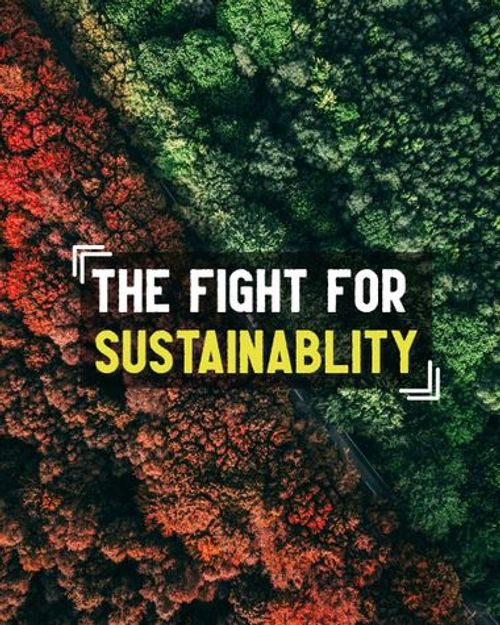Why don’t corporations and governments do more about climate change?
Jul 18, 2021 · 4 mins read
0
Share

Pressure points
There’s no question about it: climate change will force corporations to adjust their practices eventually. The big multinationals, the Fortune 500 companies, will have to change or die. But in the meantime, there are some clear points of resistance…
Save
Share
It’s true that the level of compliance just hasn’t been enough. It’s muddied by organizations that say, “This is way too difficult.” As an environmental consultant, my clients often want simple answers to complicated questions – without having to leave their comfort zone.
Save
Share
Corporations often insist that they respond to market demand. But here’s the thing: they are responsible for that demand to a certain extent. And if your business profits from unsustainable practices, you have an environmental responsibility as well.
Save
Share
One organization can spend hundreds of millions on its marketing budget every year to create demand for their products. That same marketing power could also be used to create more appeal for things that are sustainable.
Save
Share
Governments clearly have a responsibility, too. They should be the ones to steer the system, but there’s been a huge disenfranchisement of governments’ traditional position on this through corporate power, lobbying, and the revolving door between public and private sectors.
Save
Share
Policy initiatives like the European Commission’s Green Deal (a plan to make the EU’s economy sustainable by 2050) is a big opportunity to force corporations to play ball on things like clearer labelling on products, which will allow consumers to make more informed choices.
Save
Share
Organizations need to be pressured. This is something NGOs do effectively at the World Economic Forum in Davos. I’ve heard so many stories about CEOs having epiphanies as a result of that: “This is what everyone’s talking about? OK, I’m going to try to do something.”
Save
Share
But even within organizations, there’s tension between those who want to be more sustainable and those responsible for profit. If you opt into a voluntary sustainability scheme, for example, the problem is that your business becomes less competitive in the traditional sense.
Save
Share
Many organizations are locked into certain path dependencies: they’ll stick with a product or practice even if newer, more efficient alternatives are available. And if we can’t find ways to change that trend, no new business models will emerge.
Save
Share
I’ll often hear people say: “If you want my business to change, I still want a 100% profit margin.” This is the obstacle: an expectation of infinite growth, infinite consumption. And there’s a surprisingly common impulse behind it which prevents meaningful change...
Save
Share
0